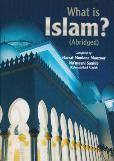What is Islam - eBook
Hazrat Sa’d (radhiyallahu ‘anhu) – Part Thirteen
Du‘aa before the Battle of Uhud
Ishaaq bin Sa’d (rahimahullah), the son of Hazrat Sa’d (radhiyallahu ‘anhu), narrates the following from his father:
On the day of Uhud, Hazrat ‘Abdullah bin Jahsh (radhiyallahu ‘anhu) said to Hazrat Sa’d (radhiyallahu ‘anhu), “Why don’t you come so that we may make du‘aa together?” They thus secluded themselves in a corner and Hazrat Sa’d (radhiyallahu ‘anhu) began to make du‘aa. He said, “O Rabb! When the enemy meet us later, make me encounter one of the enemy who is extremely mighty and very determined, I will fight him and he will fight me. Then bless me to overpower him so that I may kill him and take his equipment as spoils of war.”
Hazrat ‘Abdullah bin Jahsh (radhiyallahu ‘anhu) said Ameen to this du‘aa.







